By Oluwafolakemi Ajala (Lead Writer)
On the morning of December 7th, 2021, as we walked into the tent set up for the ground-breaking ceremony of the African Medical Centre of Excellence (AMCE), in the Apo-Kabusa area of the Federal Capital Territory (FCT), the beat of the local drums invited us to move to their beat. Going by the air of celebration and the colourful outfits of the traditional dancers, no one would have known that one of the key drivers of the project was the recipient of life-saving healthcare that saved his life many years earlier.
In 2013, Professor Benedict Okey Oramah, then Executive Vice President in charge of Business Development and Corporate Banking (BDCB) for African Export-Import Bank (Afreximbank), became very ill with what would later be diagnosed as a life threatening blood disorder. After nine months under the care of Dr Gulan Mufti, professor of Haemato-Oncology in King’s College Hospital, London, Prof. Oramah recovered and went on to become the President and Chairman of the Board of directors of Afreximbank, a position he holds till date.
Prof. Oramah credits his full recovery to the excellent doctors, health workers, and facilities at King’s College Hospital, London. In his address at the ground-breaking ceremony, Prof. Oramah reflected on what would have been a different health outcome if he did not have the resources to access the specialised care he needed. In his words, “I was privileged and lucky…we can’t leave matters of life and death to chance. Africa deserves better.”
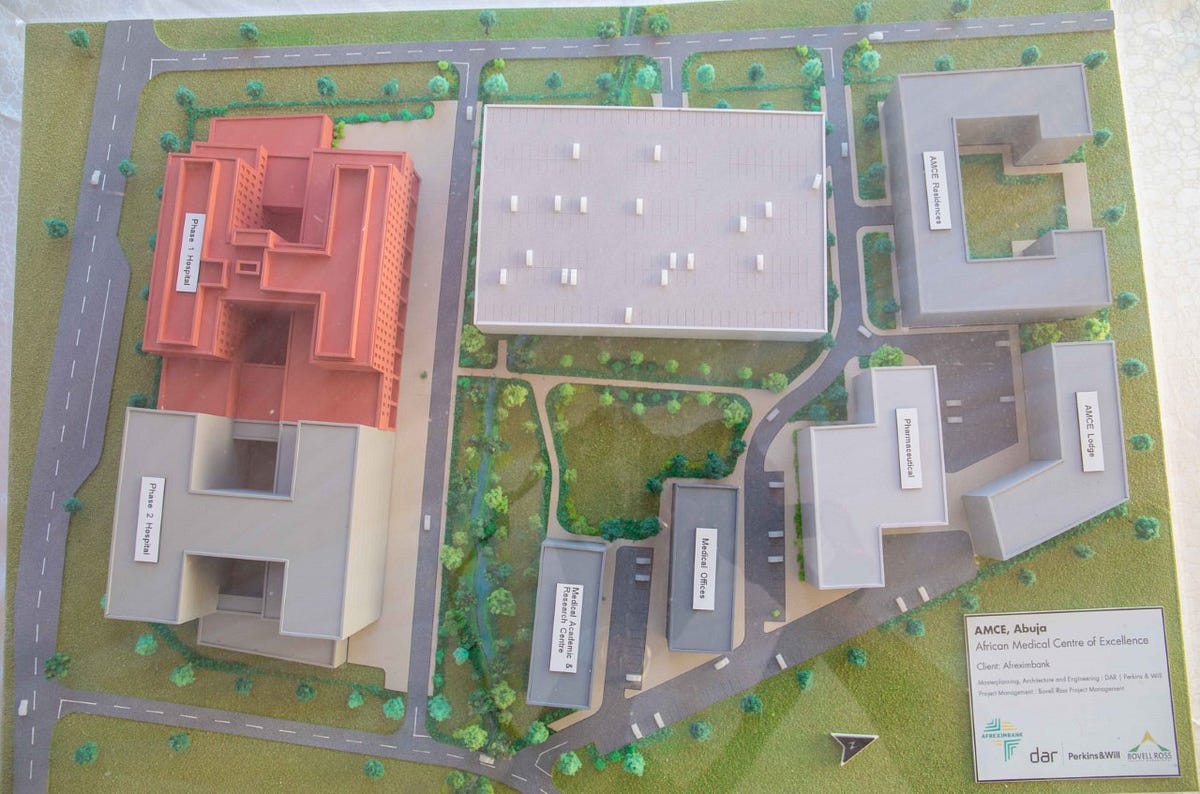
Together with Afreximbank and the Federal Government of Nigeria, the implementation of the AMCE project is being done in partnership with King’s College Hospital, London; University of Wisconsin Teaching Hospital, USA; and Christie’s Hospital, Manchester. The Africa Centres for Disease Control and Prevention (Africa CDC) is also providing support. These leading global health institutions possess a wealth of experience in delivering quality healthcare service, and the guidance they will provide is a key factor for the successful operations of the AMCE.
The aim is to open similar centres in five other African cities. Located on a large expanse of land in the rapidly developing Apo-Kabusa area of the FCT, the African Medical Centre of Excellence is to be a 500-bed secondary and tertiary healthcare institution, with an estimated construction cost of $300 million.
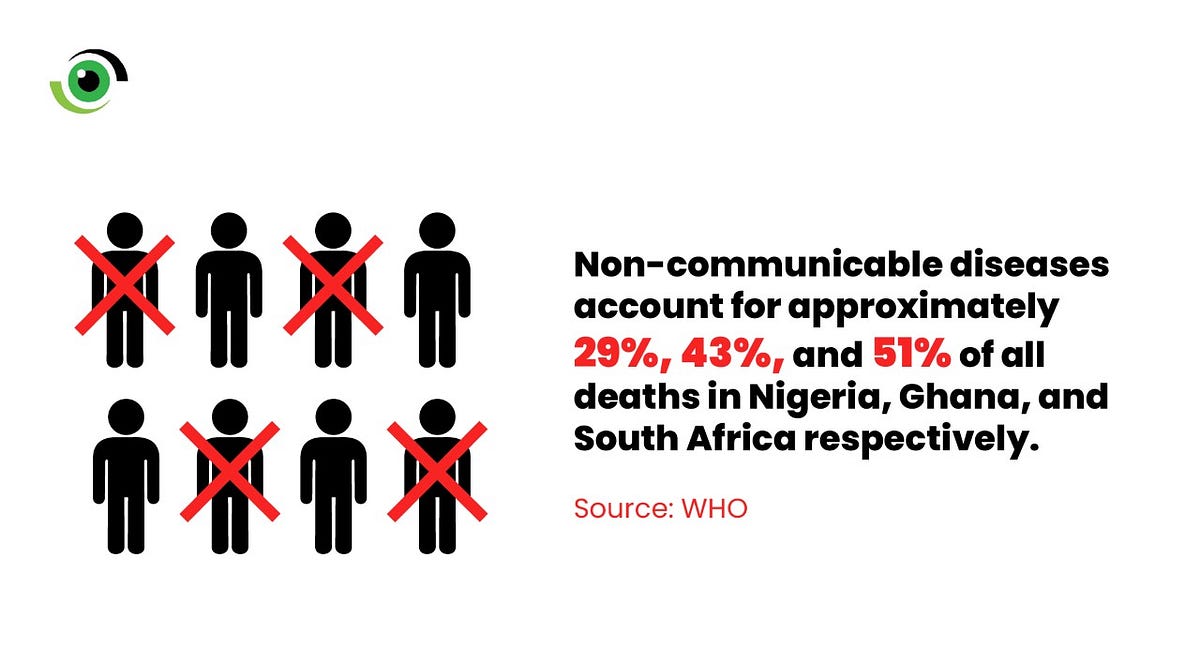
According to WHO, non-communicable diseases account for approximately 29%, 43%, and 51% of all deaths in Nigeria, Ghana, and South Africa respectively. Cardiovascular diseases have the highest indices in each country. “Africa has made economic progress in the past three decades, and with rising income comes lifestyle changes and exposure to complex non-communicable diseases,” said Prof. Oramah as he provided some insight into the troubling numbers. The new centre of excellence will aim to tackle the growing burden of non-communicable and communicable diseases.
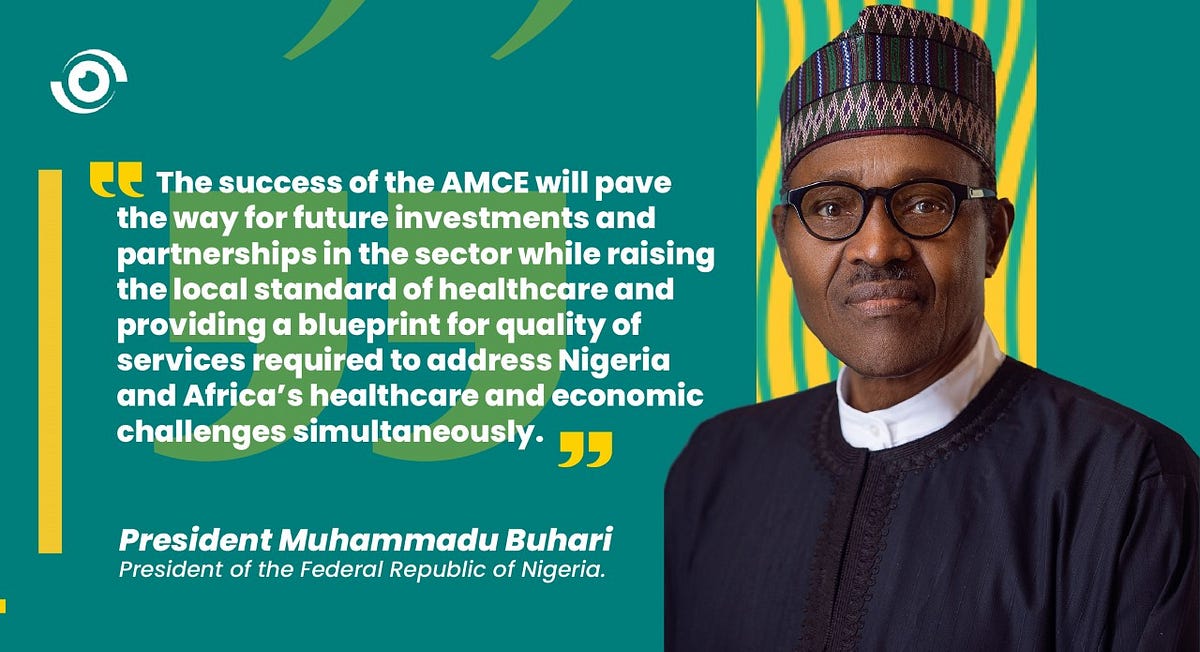
Joining the ceremony via Zoom, Nigeria’s President Muhammadu Buhari stated that the project will significantly transform the healthcare sector. “Once operational, the African Medical Centre for Excellence will address the significant shortage of clinical care options in the West African sub-region,” said the President. This is especially important, as the medical needs of Africans are changing, and our healthcare systems are barely keeping up. The consequences of this are the prevalence of avoidable deaths, and medical tourism. Prof. Oramah noted with dismay that annually, more than 300,000 Africans travel to Asia alone to seek medical services, spending over $5 billion, with Nigeria accounting for $1 billion.
“The outflow of already scarce African foreign exchange is worrying, but the free export of African medical data poses a threat to continental security, particularly in this era of biological warfare, and the use of AI and machine learning to generate the good, bad, and ugly,” stated Prof. Oramah.
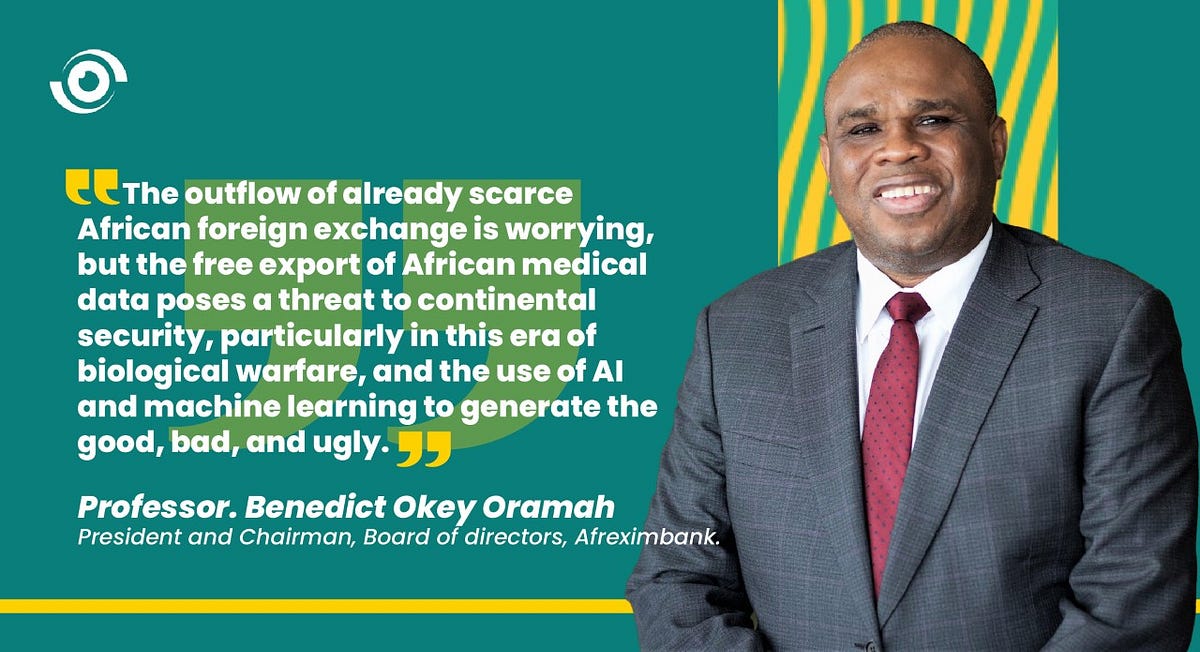
One promise that was echoed in the speeches of Prof Oramah; the Honourable Minister of Health, Dr. Osagie Ehanire; Prof. Gulan Mufti, Head of Haemato-Oncology at KCH, London; and President Muhammadu Buhari; is that the AMCE is to become operational in thirty months. It is expected that the first phase, which comprises of 170 in-patient beds, is to be commissioned in the first quarter of 2024.
Prof. Oramah emphasised that the AMCE will pull world class technology and global talent, particularly Africans in the diaspora, to provide a full spectrum of quality medical services in Oncology, Cardiology, Haematology, and general healthcare. It is also going to serve as a leading centre for research and development in medicine and clinical services. Residency, training, and observership placement programs for physicians and medical students in Nigeria and other parts of Africa, are just a few of the offerings of the African Medical Centre of Excellence. The Centre will also serve as the largest and most diverse biobank in West Africa.
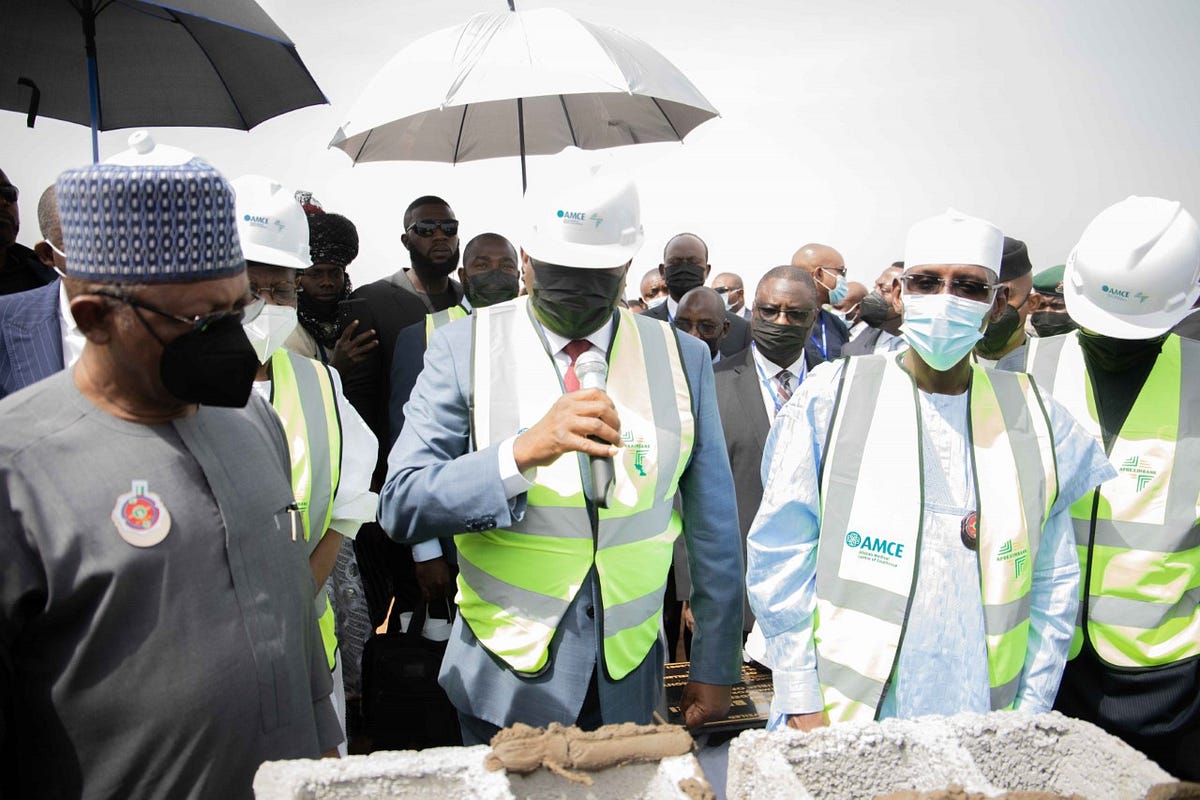
A 2017 survey carried out by NOIPolls in partnership with Nigeria Health Watch asked medical professionals what the government should do to mitigate the challenges faced by doctors, 16% mentioned the need to upgrade health facilities and equipment. It is hoped that the AMCE will stem the brain drain that has seen a growing outflow of doctors from Nigeria.
The goal of the African Medical Centre of Excellence is to catalyse the emergence of top of the range healthcare delivery in Nigeria and Africa. An effective way to achieve this is to make it accessible to all, especially in terms of affordability.
The AMCE is the result of collaborations across various countries and sectors, these kinds of partnerships are key to bridging the gaps in the provision of world class healthcare to Nigerians and Africans.


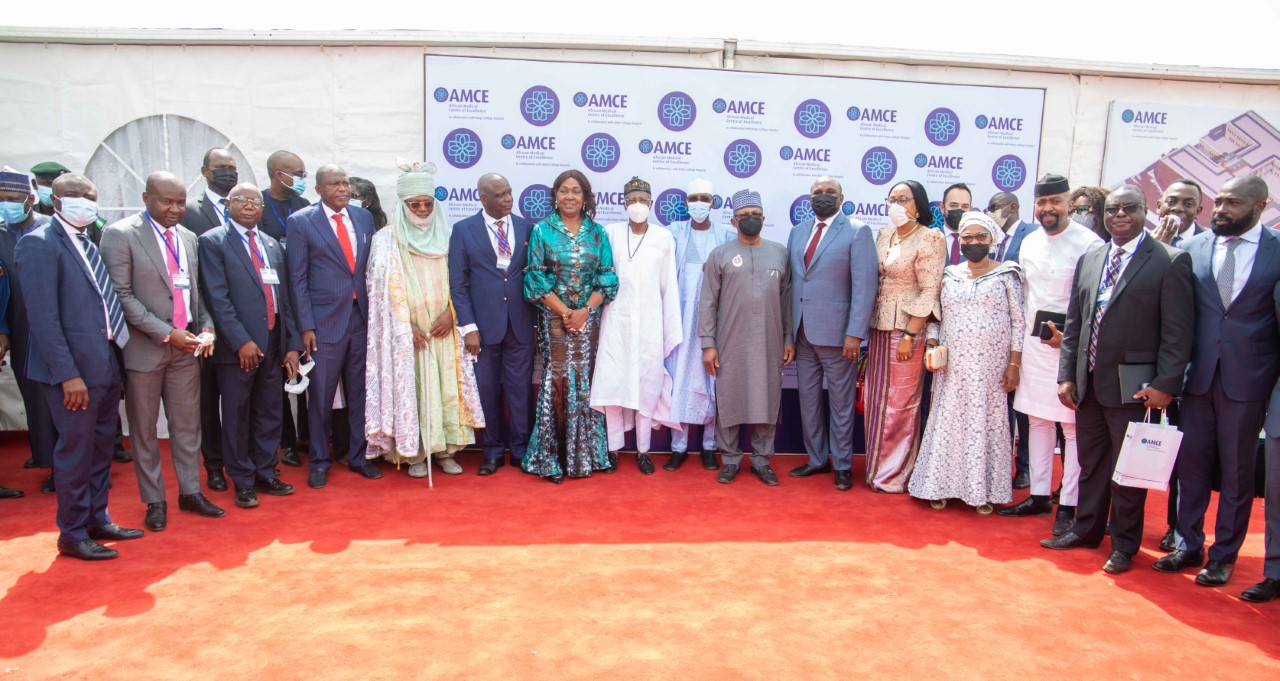
We hear AMCE Abuja has commenced operations. This is a good move by Afrexim Bank.
Hopefully, it reduces medical tourism in Nigeria.
Cheers NHW.
Good job.